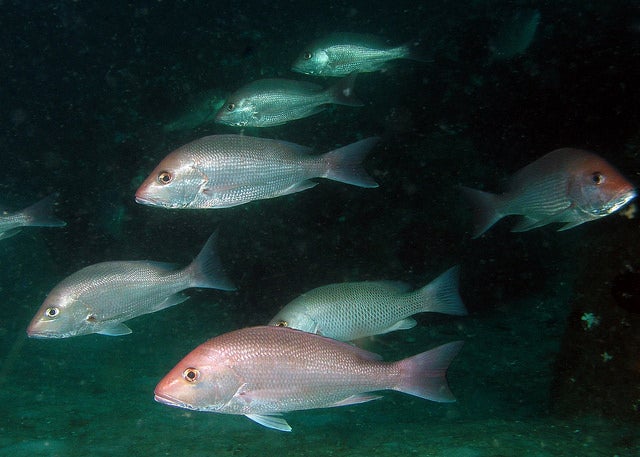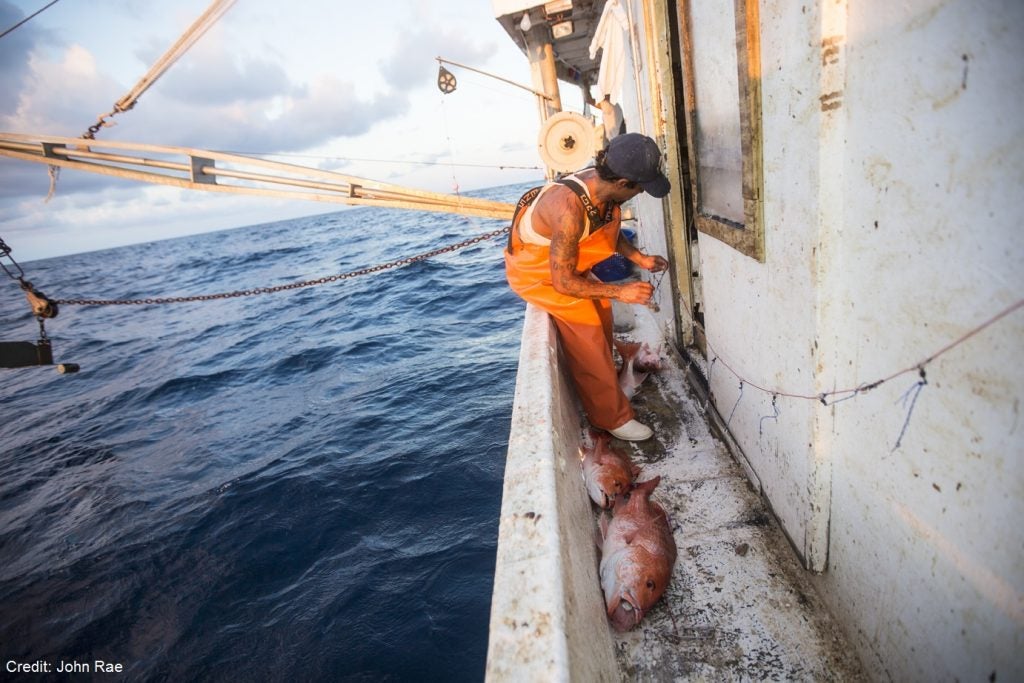Lawmakers in the House and Senate recently introduced legislation aimed at the perpetually contentious Gulf of Mexico red snapper fishery. Thanks to stronger conservation standards and accountability, red snapper numbers in the Gulf have tripled in the last decade and catch limits have doubled, leading to increased value for commercial fishermen and access for charter and for-hire vessels. Unfortunately, private anglers are stuck under a profoundly broken management system. Congressman Garret Graves, Senator Bill Cassidy and others on Capitol Hill propose to give the Gulf states the chance to manage this specific part of the red snapper fishery.

Credit: Florida Fish and Wildlife via flickr: https://flic.kr/p/VjyKem
We share the desire to give private anglers more flexibility and certainty in their fishing opportunities, and states are already innovating under current law, such as the LA Creel program in Louisiana. The new bills (H.R. 3588 and S. 1686) have improved significantly from similar attempts last Congress. But without further safeguards, they threaten to take us back to the failures of the past, when the fishery was severely depleted and red snapper was hard to find for seafood consumers and anglers alike.
The current proposals would give the five Gulf States authority to manage the private angler portion of the red snapper fishery in both state and federal waters; commercial and charter/for-hire fishermen would remain under federal management. But because the bills lack provisions to ensure that the private angler sector stays within its quota (after exceeding it nine of the last 12 years), the bills would jeopardize the sustainability of the fishery and undermine the commercial and charter sectors.
Current law requires federal fishery managers to keep every sector – commercial, charter and private angler – within an annual catch limit. If one group exceeds its quota, managers must make adjustments to make up for the overage and prevent it happening in the future to ensure long-term sustainability.










 A recently-filed bill with the upbeat title “The Modernizing Recreational Fisheries Management Act,” H.R. 2023, would unfortunately do just the opposite. By gutting one of the most important improvements of modern fisheries law, we believe that this bill would move us backwards to a time of widespread overfishing.
A recently-filed bill with the upbeat title “The Modernizing Recreational Fisheries Management Act,” H.R. 2023, would unfortunately do just the opposite. By gutting one of the most important improvements of modern fisheries law, we believe that this bill would move us backwards to a time of widespread overfishing. 